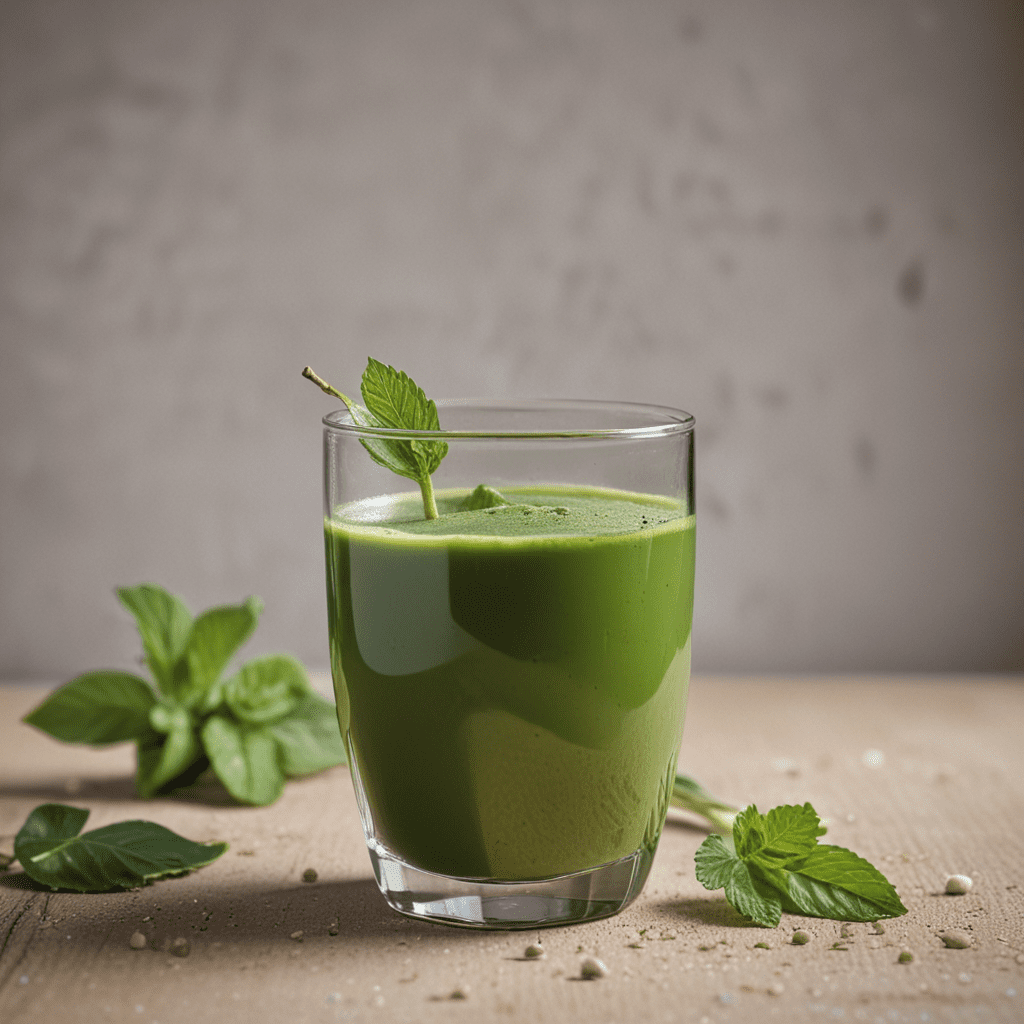
Introduction: Matcha Tea and Gut Health
In recent years, matcha tea has garnered immense attention for its potent health benefits, including its profound impact on gut health. This vibrant green tea, derived from finely ground green tea leaves, has captivated health enthusiasts and researchers alike due to its exceptional nutrient profile and therapeutic potential.
Matcha Tea: An Overview
Matcha tea, an ancient Japanese elixir, is crafted from shade-grown green tea leaves that undergo a meticulous process of steaming, drying, and grinding. Unlike traditional green tea, where the leaves are steeped and discarded, matcha requires consuming the entire leaf, bestowing a more concentrated dose of antioxidants and other bioactive compounds.
Microbial Diversity in the Gut Microbiome
The human gut microbiome is a complex ecosystem of trillions of diverse microorganisms, including bacteria, viruses, and fungi. These microbes play a crucial role in various aspects of human health, such as digestion, metabolism, and immune function. A healthy gut microbiome is characterized by a balanced diversity of microbial species, while alterations in this balance have been associated with various gut-related disorders.
Matcha Tea's Impact on Gut Microbiota Composition
Studies have suggested that matcha tea can positively influence the composition of the gut microbiota. The catechins and other polyphenols present in matcha tea have prebiotic effects, meaning they promote the growth and activity of beneficial bacteria in the gut. By supporting the proliferation of these beneficial bacteria, matcha tea helps maintain a healthy gut microbial balance.
Matcha Tea's Role in Regulating Gut Inflammation
Gut inflammation, often a precursor to various digestive ailments, can be effectively regulated by matcha tea. The anti-inflammatory properties of matcha, attributed to its high antioxidant content, help reduce inflammation in the gut lining, thereby mitigating the risk of various gut disorders.
Matcha Tea's Potential in Enhancing Barrier Function
Matcha tea's rich antioxidant content plays a significant role in enhancing the gut barrier function. The antioxidants in matcha help strengthen the gut lining, protecting it from damage caused by harmful bacteria and toxins. By maintaining a robust gut barrier, matcha tea aids in preventing the leakage of harmful substances into the bloodstream, promoting overall well-being.
Matcha Tea's Antioxidant and Antibacterial Properties
Matcha tea is brimming with antioxidants, particularly catechins, which neutralize free radicals, unstable molecules that can damage cells and contribute to inflammation. These antioxidants help combat oxidative stress, a major contributor to various diseases. Additionally, matcha tea's antibacterial properties may help inhibit the growth of harmful bacteria in the gut, further supporting gut health.
Clinical Evidence and Research on Matcha and Gut Health
While research on matcha's impact on gut health is still evolving, preliminary studies have shown promising results. A 2021 study published in the journal "Nutrients" demonstrated that matcha consumption enhanced the gut microbial diversity and reduced inflammation in mice. Another study, published in "Food & Nutrition Research," indicated that matcha could improve gut microbiota composition and reduce obesity-related metabolic disorders in rats.
Potential Benefits of Matcha Tea for Various Gut Conditions
Based on the available research, matcha tea may offer potential benefits for various gut conditions. Its anti-inflammatory properties may alleviate symptoms of irritable bowel syndrome (IBS) and ulcerative colitis. Additionally, matcha's support for a healthy gut microbiome may improve digestion, reduce bloating, and boost overall gut health.
Conclusion: The Promise of Matcha Tea for Gut Health
Matcha tea, with its unique composition of bioactive compounds, offers a promising approach to supporting gut health. Its prebiotic effects, anti-inflammatory properties, and antioxidant activity collectively contribute to maintaining a balanced gut microbiome and promoting overall digestive well-being. While further research is warranted to fully elucidate the mechanisms and potential clinical applications, matcha tea's therapeutic potential for gut health is undeniable.
Frequently Asked Questions (FAQs)
Q: How much matcha tea is recommended per day?
A: The recommended daily intake of matcha tea varies depending on individual factors. Generally, 1-2 cups per day are considered safe and beneficial.
Q: Is matcha tea safe for everyone?
A: While most individuals can enjoy matcha tea safely, pregnant or breastfeeding women, as well as those with underlying health conditions, should consult a healthcare professional before consuming matcha regularly.
Q: Can matcha tea be incorporated into other foods or drinks?
A: Absolutely! Matcha's versatility allows it to be incorporated into various culinary creations. It can be added to smoothies, baked goods, desserts, and even savory dishes to enhance flavor and nutritional value.
